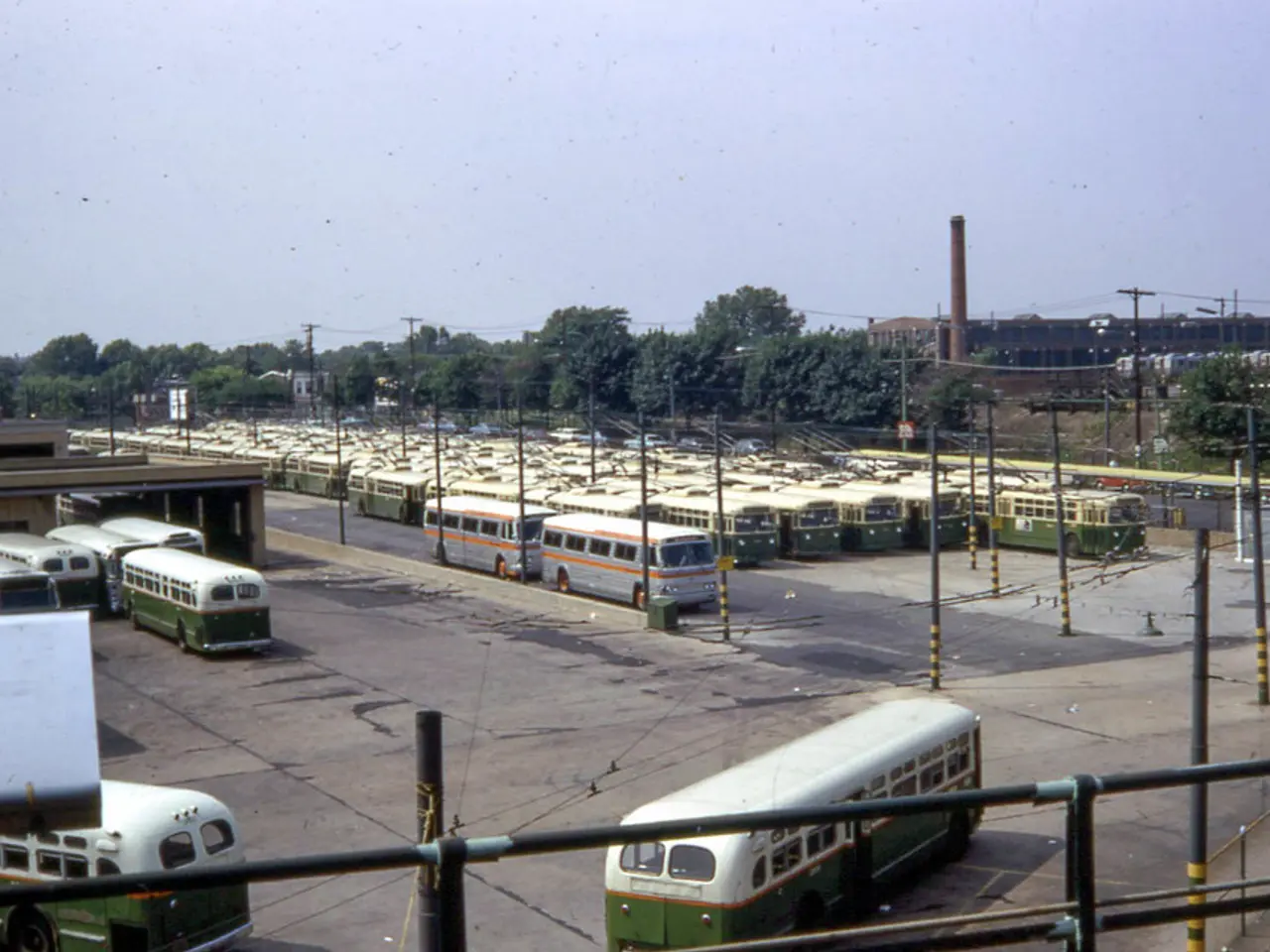"Exposed: Northern Transport Investment's 10-Year History of Dishonesty"
A newly published study by the Institute for Public Policy Research (IPPR) has highlighted a significant disparity in transport infrastructure investment between London and the North of England over the past decade. According to the research, if the North had received the same per-person transport spending as London, it would have received an estimated £140 billion more since 2009/10 - enough to construct seven Elizabeth Lines, a major London infrastructure project.
The study, conducted by experts from IPPR and IPPR North by examining Treasury figures over the decade to 2022/23, reveals that London's per-capita spending on transport has been more than double that of the North. London has received about £1,183 per person annually, whereas the North has only received around £486 per person. This disparity has widened over time, with the increase in transport spending per capita in London being 1.85 times higher than the UK average and more than twice the rate of increase in the North’s spending each year.
Historically, investment decisions have prioritized the Greater South East and London, leaving northern regions with outdated and less reliable infrastructure. This has contributed to regional inequalities in economic opportunity and connectivity, with London's modernized and expanding transport infrastructure leaving the North behind. This funding imbalance is seen as a deliberate policy failure by successive governments, hampering Northern England’s growth potential.
Marcus Johns, a senior research fellow at IPPR North, described this as a "decade of deceit," with hollow commitments failing to translate into adequate funding for Northern transport. Johns also emphasized that the numbers don't lie and that the investment disparity between London and the North isn't right.
Jim O'Neill, former Treasury minister and chair of the Northern Powerhouse Partnership, has backed the call for major infrastructure investment. He believes that this spending review, due to take place this Wednesday, is the right time for the chancellor to invest in northern growth to close the investment gap. O'Neill also stressed the need for good governance and a long-term approach to address the UK's productivity issues and weak private and public investment.
However, O'Neill did not comment on the previous findings of the IPPR study regarding the investment disparity between London and the North. The study also did not provide any new facts about the planned sustainable housing in Cheltenham or the predicted increase in homelessness due to benefit cuts.
The IPPR calls for transformative investment to address the imbalance and unlock the region’s economic prospects. The study recommends prioritizing public transport, improving rail and road networks, and investing in sustainable housing and green infrastructure. The chancellor, Rachel Reeves, has pledged to invest £15bn in the spending review to improve transport outside of London.
The scrapping of the northern leg of HS2, which was supposed to provide better access to cities across the UK and bridge the north-south divide, within the last 10 years, has further exacerbated the transport infrastructure gap between London and the North. The IPPR emphasizes the need for a comprehensive transport framework for delivery to ensure that the North finally catches up with London's pace of development.
- The IPPR's study reveals a stark disparity in transport infrastructure investment between London and the North, with London receiving more than double the per-capita spending, which has widened over the years.
- The study underscores the significance of this funding imbalance in the realm of politics and policy, as it has been alleged to be a deliberate policy failure by successive governments, hindering the growth potential of Northern England.
- In light of the findings, the IPPR calls for transformative investment in public transport, sustainable housing, and green infrastructure, advocating for a long-term, business-minded approach to bridge the transport infrastructure gap between London and the North.




